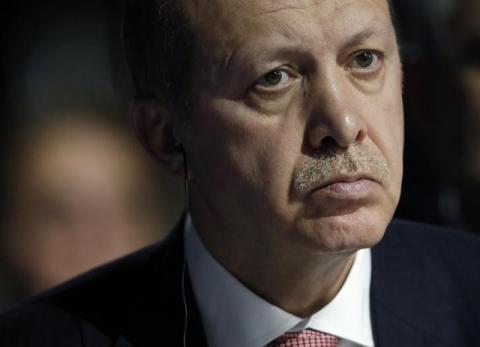Advertisement
Erdogan vows no respite in Turkey's war on Kurdish militants
ISTANBUL (Reuters) - Turkish President Tayyip Erdogan on Thursday vowed no let-up in a military campaign which he said had killed more than 3,000 mostly Kurdish militants this year in some of the heaviest fighting since their insurgency began three decades ago.
In a New Year statement, Erdogan said Turkey had "the resources and determination" to deal with the Kurdistan Workers Party (PKK), which first took up arms in 1984 to push for greater autonomy in the largely Kurdish southeast.
The violence has preoccupied the NATO member's armed forces and complicated international efforts to fight Islamic State in neighboring Syria, where a Kurdish group linked to the PKK is fighting the jihadists. Western allies want Turkey to focus more squarely on the threat from Islamic State.
"Our security forces are continuing to cleanse every place of terrorists, in the mountains and in the cities, and will continue to do so," Erdogan said, referring to the PKK.
Turkey launched what it dubbed a "synchronized war on terror" in July, meant to include a campaign against Islamic State in Syria as well as Kurdish militants at home. But it has overwhelmingly concentrated its efforts on the PKK.
Southeastern Turkey has plunged back into some of its worst violence since the 1990s after a two-year ceasefire between the PKK - designated a terrorist group by Turkey, the United States and European Union - and the state collapsed in July.
Warplanes have bombed PKK camps in southeastern Turkey and across the border in the mountains of northern Iraq, while thousands of troops backed by tanks have in recent weeks pressed a campaign within Turkey to flush out militants on the ground.
THOUSANDS KILLED
Erdogan said 3,100 militants had been killed by the Turkish military in and outside the country since the start of 2015, which would be one of the highest rates of attrition for years.
Since the PKK launched its insurgency, fighting has been largely in the countryside, but the latest violence has focused on urban areas, where the PKK youth wing has set up barricades and dug trenches to keep security forces out.
Residents in towns such as Cizre and Silopi, which have been rocked by explosions and gunfire in recent weeks, have complained that the military operations are indiscriminate and that round-the-clock curfews have left even the sick unable to get to hospitals.
The violence has also hit once-thriving cross-border trade. The UND transporters' association said on Thursday around 10,000 truck drivers were stuck on the Iraqi side of the border because of the security concerns in Silopi and Cizre.
In apparent reference to a row with Baghdad over the deployment of Turkish troops to northern Iraq, Erdogan said Turkey had no territorial ambitions in any other country and did not question the sovereignty of its neighbors.
Iraq's prime minister accused Turkey on Wednesday of failing to respect an agreement to withdraw its troops from the north and its foreign minister said if forced, Iraq could resort to military action to defend its sovereignty.
The diplomatic dispute flared after Turkey deployed a force protection unit of around 150 troops earlier this month, citing heightened security risks near a military base where its troops were training an Iraqi militia to fight Islamic State.
"We just want people who are historically and culturally our brothers to live in peace and security," Erdogan said.
(Additional reporting by Ceyda Caglayan in Istanbul; Writing by Nick Tattersall; Editing by Giles Elgood)



















Add new comment